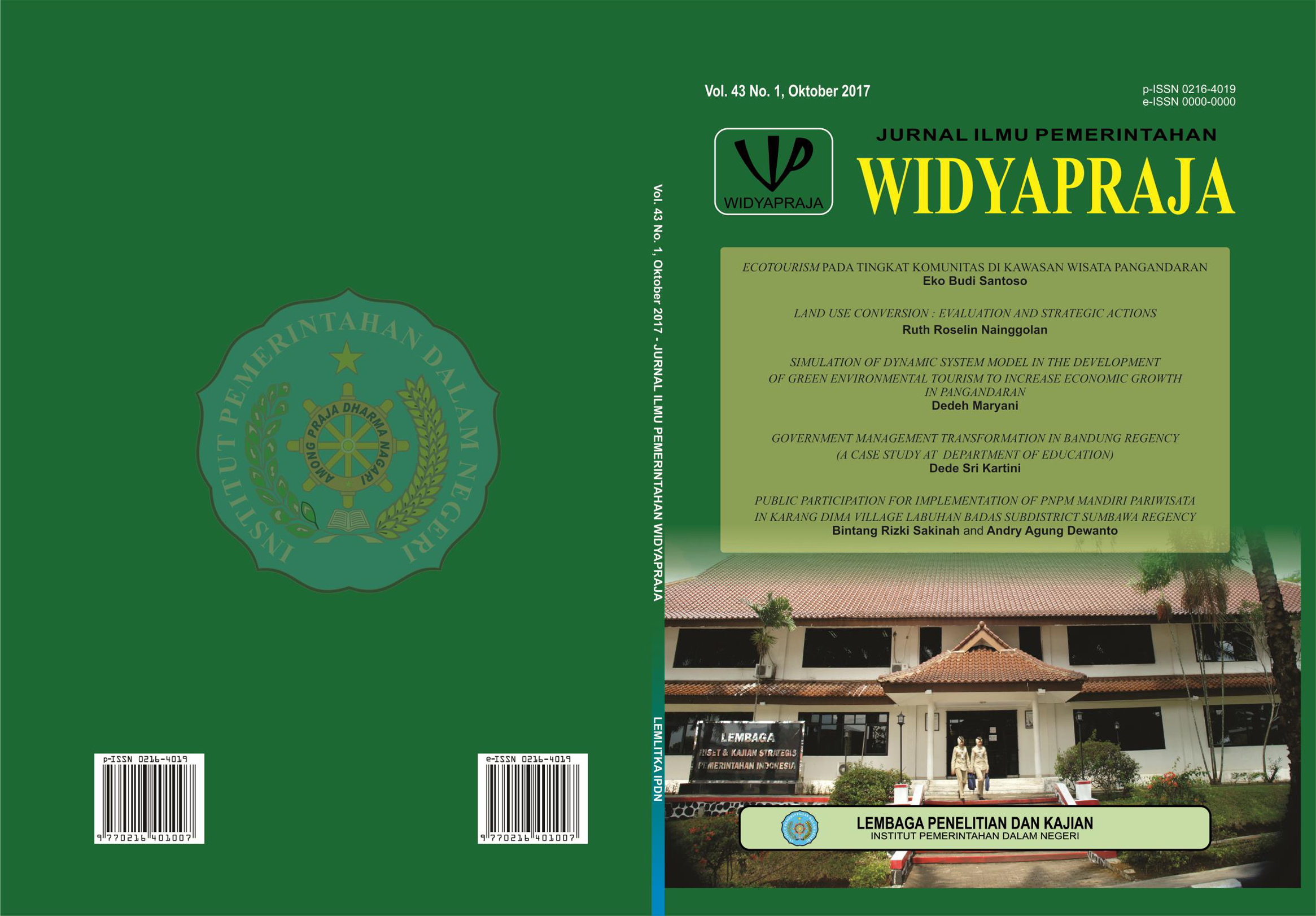CRISIS AND COMMUNICATION MANAGEMENT IN NATIONAL POPULATION AND FAMILY PLANNING BOARD IN THE POST-REFORM ERA
DOI:
https://doi.org/10.33701/jiwbp.v7i1.65Kata Kunci:
Government Public RelationsAbstrak
Crisis can occur in all organizations and institutions both private and government. It can be caused by many factors, both internal and external, which one of which is the environmental changes that requires an institution to adapt. National Population and Family Planning Board (BKKBN) is a governmental institution that has successed in the socialization of Family Planning Program in the 1960s-1990s by reducing the rate of population growth. After post-reform era happened in Indonesia, Total Fertility Rate (TFR), children average number from childbearing age couples stagnant in 2,6. Environmental changes marked by Regional Autonomy Regulations (OTDA) arrangement in January 2004 where authority of the Central Government including FP Program is devolved to Local Governments. OTDA associated with political and economic policies impacts on institutional, budget, and personnel availability.
This article is using qualitative method, explaining BKKBN as a government institution in organization communication crisis after OTDA enactment. The FP Program that proven improved society welfare is no longer a priority. Communication was only one command from Central Government to Local Government, in post-reform era it hampered, as most District Heads are more concerned with short-term development because of their short tenure. The budget support even personnel for the socialization of FP Program is reduced and some have none at all. There are four important stages in the crisis by Steven Fink, prodromal stage, the acute stage, chronic stage, and resolution stage. There must be different communication strategies at each stage. BKKBN need to regain public trust to overcome the crisis. According to Hardjana, reputation is crisis antithesis and the crystallization of the image. Determining the right communication strategies is needed by BKKBN as a strategic institution in improving society welfare to regain their confidence to achieve institution’s goal, decrease TFR which impact the declining rate of population growth in Indonesia.
Keywords: Crisis, Communication Management, Reputation, GovernmentUnduhan
##submission.downloads##
Diterbitkan
Terbitan
Bagian
Lisensi
- The right of publication of all material information contained in this journal site is held by the editorial board / editor with the knowledge of the author. Journal Manager will uphold the moral rights of the author.
- The formal legal aspect of access to any information and articles contained in this journal site refers to the terms of the Creative Commons Attribution-ShareAlike 4.0 (CC BY-SA) license, which means that This license lets others remix, adapt, and build upon your work even for commercial purposes, as long as they credit you and license their new creations under the identical terms. This license is often compared to “copyleft” free and open source software licenses. All new works based on yours will carry the same license, so any derivatives will also allow commercial use.
- Each Ilmiah Wahana Bhakti Praja journal, both printed and electronic, is open access for educational, research and library purposes. Beyond this purpose, publishers or journal managers are not responsible for copyright infringement committed by readers or users.





